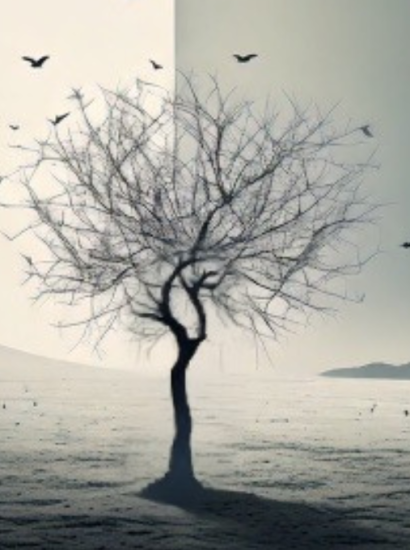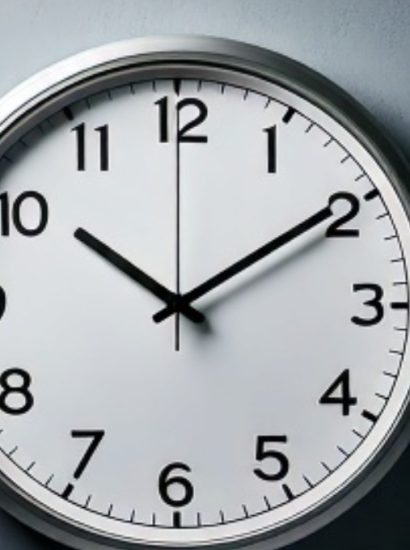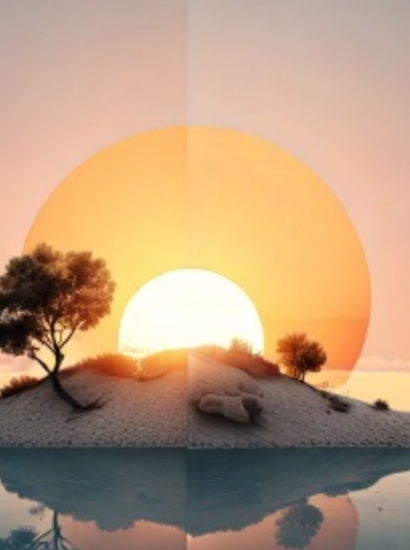This post is also available in: ΕΛΛΗΝΙΚΑ (GREEK) TÜRKÇE (TURKISH)
An 85-year-old grande dame… A Cypriot with 6 children, 14 grandchildren and 17 great-grandchildren… She was born a Greek Cypriot, got married at the age of 14 and then took the name Aysel… After the war, she lived in Karavas…
▶ “I got married very young. I was 14… I gave birth when I was 16. My husband came and took me away and that’s how we got married. It was one of the biggest villages in Cyprus, Geroskipou… It used to be a mixed village. The majority were Greek Cypriots… However, Turkish Cypriots were wealthier; they had lots of properties, and Greek Cypriots used to work for Turkish Cypriots.”
▶ “Many of them got married, even before me… Those who wanted to get married could change their religion. People used to live and work together; we were a mixed village. When we got married, I changed my religion, voluntarily… I was a child, anyway… We couldn’t have an official marriage either.”
▶ “I learnt Turkish very fast… I learnt it by hearing it from my husband’s family… When my children grew up and went to school, I learnt it alongside them.”
▶ “There is no agreement… No one is willing to reach an agreement… After this war, we all got messed up… Both Greeks and Turks… People have no problems with each other. Whoever has a vested interest in this issue is the one causing the problem… Take a look and see who gets to what positions… Who would own all this wealth if the war hadn’t happened?”
She was born a Greek Cypriot in the village of Geroskipou in Paphos, and grew up as a Turkish Cypriot. She has embodied the identity, culture and social influences that history and geography bestow upon human beings. At the age of 14, she married a Turkish Cypriot and changed her name. She was her mother’s 14th child. After the war, she came to the north and settled in Karavas; her siblings and parents stayed in the south.
I ask, “Your name?”, and she says, “Aysel Güvensoy”.
She is 85 years old…
While talking about her childhood, I also ask, “What was your name then, your first name?”…
“Don’t ask me that… I won’t tell you…”, she replies…
“You’re too curious… Don’t be so nosy,” she says.
She has 6 children… 14 grandchildren… 17 great-grandchildren…
“I got married at 14, and gave birth at 16…”
First, I go back to her childhood…
“I was born in Geroskipou (Γεροσκήπου), famous for its loukoumi, between Paphos and Limassol. I went to an English school for four years… We used to sing English anthems in the morning… During the reign of the Queen… I went to school before I was old enough, they wouldn’t let me in… They accepted me at age 7…”
“My parents are also from Geroskipou. My mum had 14 children, 7 of them lived. I am the 14th child… My grandfather was very rich… According to our mother, my father loved to drink a lot. He sold our fields, one by one. He had a lot of property… My mother used to work on the farm, for a German woman… My father used to go and harvest carobs and hemp; he died at the age of 63, too soon… My mother died while we were in the north.”
Child marriages… There is a strong reaction to it now, naturally… I guess there was no such awareness at the time… We talk to Aunty Aysel about how she got married… She hosts us at her home in Karavas… Her granddaughter is with us, and her daughter… She cooks a lot of food, desserts, soups for all of us… She welcomes us to her table the same way she welcomes us to her heart; in a sincere, genuine, joyful manner…
“I got married very young. I was 14… I gave birth when I was 16. My husband came and took me away and that’s how we got married. It was one of the biggest villages in Cyprus, Geroskipou… It used to be a mixed village. For example, there was the family of İsmail Beyzade… The majority were Greek Cypriots… However, Turkish Cypriots were wealthier; they had lots of properties, and Greek Cypriots used to work for Turkish Cypriots.”
“Many of them got married, even before me”
“Have there been many marriages between Turkish Cypriots and Greek Cypriots?”, I ask.
It was the British era… In the Republic of Cyprus, marriage between two different community members is conditional on ‘religious conversion’… Otherwise, it is forbidden…
“Yes, indeed… Many of them got married, even before me… Those who wanted to get married could change their religion. There were many marriages like this in town as well… Ayten got married… Emete got married, Maria got married… There were many marriages between the two communities… People used to live and work together; we were a mixed village. When we got married, I changed my religion, voluntarily… I was a child, anyway… We couldn’t have an official marriage either.”
Aysel Güvensoy ran away with Salih, with whom she worked at the farm. Of course, her name was different then… I ask about the farm…
“Thousands of acres of fields, ponds, animals… It was actually a very big farm… The owner was a Turkish Cypriot, but then he sold it to a German woman… Emilia… I had been working since I was a child. I went to primary school for four years, then I started to work; I didn’t study. I started working at the age of 10…”
“We were an exemplary couple”
I ask, “Did you speak any Turkish?”
“How could I? Salih could speak Greek… My husband could read and write Greek better than I did… He was 9 years older than me…”
Then, of course, the question of “How did you get married?” follows…
“At that age, I could make sense of neither love, nor having a husband… Someone visited my family to ask for my hand on his behalf… There was a tailor, a Greek Cypriot… Salih sent him to my family for this purpose… My parents accepted… My brothers and sisters too… We became an exemplary couple… Salih’s family was afraid that their son would get killed… We got married in 1953… There were no clashes, back then. We didn’t have a wedding. We got married at Hüseyin Köfünyeli’s house, in the presence of a hodja… The imam officiated our wedding… We didn’t have an official wedding because I was underage… We got married after we had four children… I changed my name to Aysel Salih. I took an oath. When I was a child, we used to go to church, of course… Then I fasted and also went to the mosque. I did not try to deceive anyone… I named all my children after my husband’s family… My siblings always loved my husband… My family too…”
“We didn’t have any clashes in our village”
Aysel Güvensoy’s experience of the conflicts that divided Cyprus was much more difficult compared to others… Because the communities in conflict were her family… One half Greek Cypriot, the other half Turkish Cypriot…
“Even after the clashes started, there were not many incidents in our village. We didn’t have any weapons in the village anyway… They were all collected… There were no clashes until 1974… Turkish Cypriots and Greek Cypriots remained friends in our village… There was just one night when the soldiers came and stole the animals; they didn’t do any other bad things… We didn’t have any clashes in our village…”
She gave birth to all her children in the south, before the war… She even married off two of them in that period…
“There were three sisters, midwives… Greek Cypriot… They used to come to all our houses and help us deliver. Those three sisters delivered all our babies in Koloni.”
I ask about the war of 1974, the migration and their passage to the north.
“We came in 1975, with buses, following the agreement… We loaded our television and beds on buses and brought them with us. I also brought my photo albums and they were all stolen here. They broke into the house and stole everything… The albums, the tablecloth, the photo camera… We had managed to bring them here from the south, and they stole all of them here…”
“We suffered a lot until we settled… We were not able to find a house… There were many houses, but they had all been settled into. First, they gave us the houses of Evqaf… Then a religious official came and entered the house… He kicked us out… When we arrived, Greek Cypriots had already fled… Both locals and foreigners came, and claimed one, or two houses each. Nicosians also came and bought houses; even those who were not refugees… We found the house we currently live in by chance. The family that lived here fled to Australia… We could only enter this house in 1977… Before that, we stayed in tourist houses…”
“I learnt Turkish very fast”
When and how did she learn Turkish?
“I learnt Turkish very fast… I learnt it by hearing it from my husband’s family… When my children grew up and went to school, I learnt it alongside them.”
“When did you share your personal story with your children?”
“We told them when they grew up… They learnt, anyway… We used to go to the south, to my mum’s; they would see their grandmothers and other relatives…”
I ask whether she had any problems due to her identity…
“I never had any problems, neither on this side nor on the other… Neither in my own family, nor in my husband’s… Nobody said a bad word to me… I worked in the cooperative system for 19 years… Then I retired…”
“Why so many wars? Why all the enmity?”, I ask…
“People are mad… It just happened… The priests! When I married my husband, they didn’t let my mother in the church for a year… This priest came to the house, asked me to step back from marriage… My brother kicked him out…”
They were seven siblings, now there are only two left alive. The other brother is in Geroskipou.
I ask, “Have you forgotten how to speak Greek?”
She says, “Do people ever forget their mother tongue?”
Then we start talking about the state of the country… What is going to happen now?…
“If only those in power could leave us alone… Don’t you see the terrible state we are all in? There is no agreement… No one is willing to reach an agreement… After this war, we all got messed up… Both Greek Cypriots and Turkish Cypriots… I have a nephew who is a Greek Cypriot; he says that Greeks lose every war, and live a life of misery… People have no problems with each other. Whoever has a vested interest in this issue is the one causing the problem… Take a look and see who gets to what positions… Who would own all this wealth if the war hadn’t happened?”
“What difference is there, there is no difference… No my son, no! A human being is a human being”
She lived, felt and sensed the experience of two different ethnic identities in Cyprus…
I ask, “How are we different from each other?”
“What difference is there, there is no difference… No, my son, no! A human being is a human being… We are very close with my nephews and nieces, and they are very close with my children as well… We are all the same…”
With her 85 years of experience, I ask for her “advice” to young people.
She speaks so sincerely, naturally, genuinely that we find it hard to swallow while listening…
“They should stop discriminating… A human being is a human being… “
[Photo insert: article ends with a photo of Aysel Güvensoy with her husband, Salih Güvensoy. The photo caption says: “With her husband Salih, whom she ran away with at the age of 14…”]
Source: “THEY SHOULD STOP DISCRIMINATING… A HUMAN BEING IS A HUMAN BEING…”






